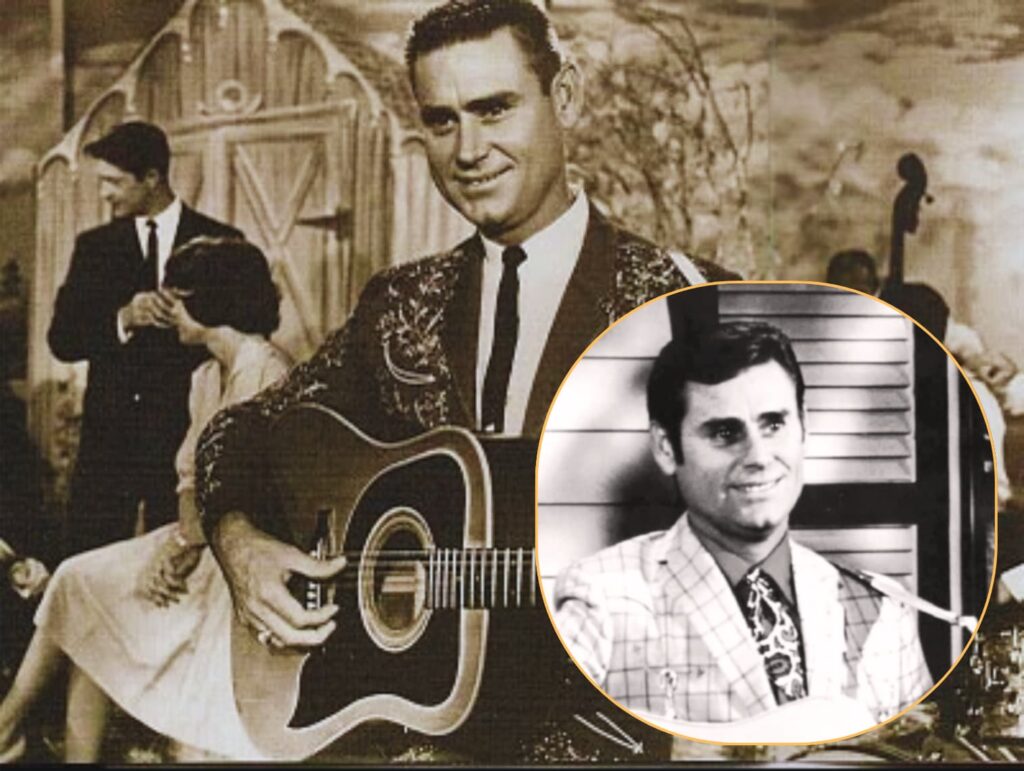
The Heartbreaking Agony of Unrequited Love
There are songs that simply exist, and then there are songs that become part of the very fabric of our lives, resonating with a truth so profound it feels like our own story. For many of us who grew up with the sounds of classic country, few songs capture that raw, aching vulnerability quite like “The Window Up Above” by the legendary George Jones. Released in 1960 as a single on the Mercury Records label, this poignant ballad didn’t just climb the charts; it burrowed its way into the hearts of a generation. It was a testament to the power of a simple, honest story, one that resonated deeply with anyone who had ever felt the sting of loving someone who could never truly be theirs. The song’s journey on the Billboard country charts was a testament to its widespread appeal, peaking at a respectable number two, a position that solidified its place in the canon of country music history.
But to truly appreciate “The Window Up Above,” we must first understand the man behind the voice, a man whose life was as turbulent and heart-wrenching as the songs he sang. George Jones, often hailed as “the greatest country singer of all time,” was a master of conveying a lifetime of sorrow and regret in a single, soulful phrase. His voice, a unique blend of power and fragility, was the perfect instrument for a song like this. Written by Billy Sherrill, a man who would later become a legendary producer and songwriter in his own right, “The Window Up Above” was a story of quiet desperation. Sherrill, a young man at the time, was still finding his footing in Nashville, and this song was an early glimpse into the genius that would define his career. It was a story told from the perspective of a man watching his beloved from a distance, a man whose love was a secret burden he carried alone.
The meaning of the song is beautifully, painfully clear. It’s a story of a one-sided love affair, a tale of a man who is watching the woman he adores fall for another. The “window up above” is both a literal and a metaphorical space. It’s the physical window through which the narrator observes her, but it’s also the window into his soul, a place where his hopes and dreams for a life with her are shattered. The song’s genius lies in its subtlety. It doesn’t scream with anger or rage; instead, it whispers with a quiet, dignified sorrow. The narrator isn’t a bitter rival; he’s a helpless observer, a man whose only recourse is to bear witness to the joy he can never be a part of. The lyrics paint a picture of a love that is pure and unwavering, a love that persists even in the face of absolute futility. It’s the kind of love that defines so many classic country songs: the kind that hurts, but the kind you can’t let go of.
Listening to “The Window Up Above” today, especially for those of us who remember it from our younger days, is an experience filled with nostalgia. It transports you back to a time when country music was the soundtrack to our lives, a time of scratchy records and late-night drives. The song is a beautiful reminder of the simple, unadorned storytelling that made classic country so enduring. It’s a song about a universal human experience, the quiet agony of loving someone from afar, a feeling that knows no age or generation. It’s a song that proves that true emotion, delivered with an honest and vulnerable voice, will always stand the test of time. And in the voice of George Jones, a man who lived every word he sang, “The Window Up Above” is not just a song; it’s a timeless, heartbreaking masterpiece.